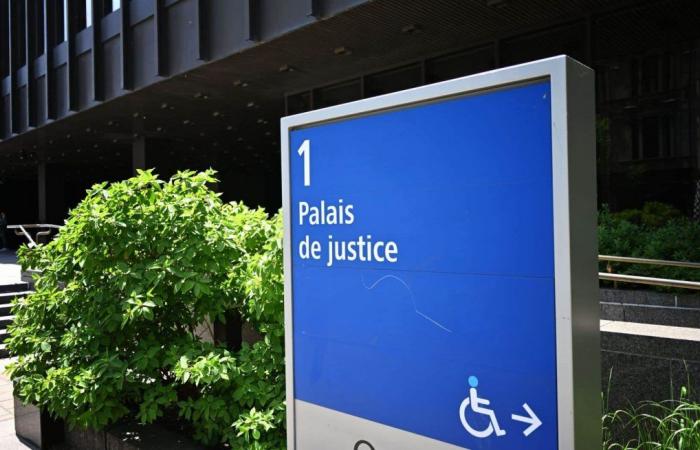A trans woman who was refused a job as a waitress in a bar has been awarded nearly $15,000 in damages from the Human Rights Tribunal for the discriminatory treatment she suffered.
Léa (fictitious name since hers is kept confidential by the Court) identifies as a trans woman.
In March 2017, she applied for a job as a waitress at Bar Lucky 7 in Montreal. She was invited for a training session and at the end of it, the employee who showed her the ways of doing things at the place declared herself very satisfied with her and informed her that her work schedule work will be communicated to him soon. But soon after, the manager asked her if she was trans “because of her voice.” Léa responds in the affirmative and the man immediately tells her that he cannot hire her, citing “a security risk for her” and fears of reactions from his “old-fashioned” clientele.
Léa reports being told by the manager that he did not want to “have to defend her every day”. The latter did not present his version of the facts to the Court.
Distressed, feeling like she would never truly be a woman because of her voice, Léa filed a complaint two weeks later with the Commission on Human and Youth Rights. She considers that the woman was the victim of discrimination because of her gender identity and that the Lucky 7 violated her right to equality in employment and the protection of her dignity.
The Commission was delighted with this victory won before the Court: “This is an important judgment, since it is one of the first cases won by the Rights Commission for a case of discrimination in employment based on gender identity. We hope that this decision will raise awareness among employers and the population about respecting the right to equality of trans people,” declared the President of the Commission, Philippe-André Tessier.
Gender identity and expression
“Gender identity or expression” has not always been a ground of discrimination written in black and white in the Quebec Charter of Human Rights and Freedoms. These words were added in 2016 only, M said in an interview.e Marjolaine Condrain-Morel, lawyer and senior legal popularizer at Éducaloi. A trans person could obviously sue before this date, but the courts used the prohibition against discriminating on the basis of “sex”.
The judges also analyze this relatively new ground of discrimination like all the others listed in the Charter, specifies the lawyer.
Moreover, in her decision on Léa’s case, Judge Catherine Pilon of the Human Rights Tribunal reviews the case law and laws dealing with the rights of trans people, which began to be deployed in 1978 in Quebec . She also recalls a 1998 case which confirmed that sex reassignment surgery is not a necessary condition for access to this ground of discrimination.
“The law is constantly evolving on this issue, as society is also constantly evolving,” adds M.e Condrain-Morel.
Then, Judge Pilon writes that she has no doubt: Léa was refused a job because she is a trans woman. His right to equality in employment was violated.
She also judges that the reason given by the manager for not hiring him is not valid. He cited the “risk of violence she would incur from customers if they discovered she was a trans woman.” Without wanting to deny that trans people are likely to experience violence, the magistrate considers that the evidence did not support such a conclusion. This is only a “hypothetical risk”. And then, an employer has an obligation to offer a safe environment to its employees, recalls the judge.
We cannot justify discrimination by the preferences or prejudices of our customers, she continues, referring to older cases, in which, for example, we refused to hire a person because of the color of their skin.
The judge then decided to award $12,000 in damages to Léa for the psychological harm she suffered after her refusal to be hired.
Because she suffered harsh consequences: “In the days and weeks following the event of March 31, 2017, [Léa] is depressed,” notes the court in its judgment. “She feels as if her wings have been clipped, even though she has done everything to be considered a “real woman”. » She loses all self-esteem. She developed “an obsession with the tone of her voice” and she subsequently made two trips to the United States to have surgery on her vocal cords, it is stated in the decision.
The judge also ordered the bar and the manager to pay her $2,000 each in punitive damages, as well as an amount equivalent to the salary she should have received on the day of her training.
A person who is the victim of discrimination has several recourses, recalls Me Condrain-Morel. She can sue directly in court or file a complaint with the Human Rights Commission, which will examine her case and sometimes offer a mediation session. She can also bring the case on behalf of the person discriminated against in court, which has certain advantages for her, such as having specialized representation in this area and also not having to pay a lawyer. If the person who is the victim of discrimination is unionized, they can also contact their union, adds the Éducaloi lawyer.
Causes like this “which affect everyday life” make it possible to explain to people that they have rights and that they can assert them, she concludes.






